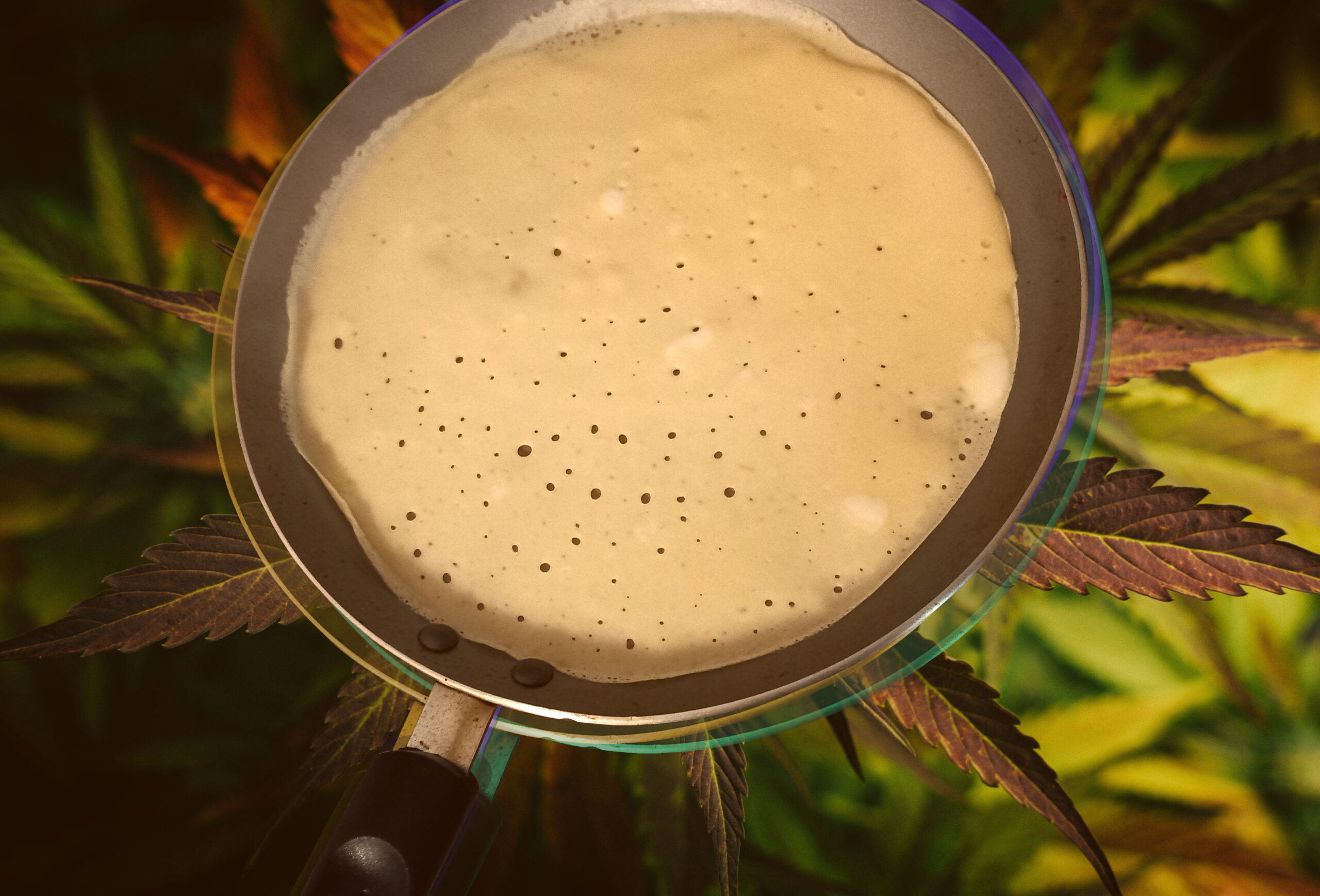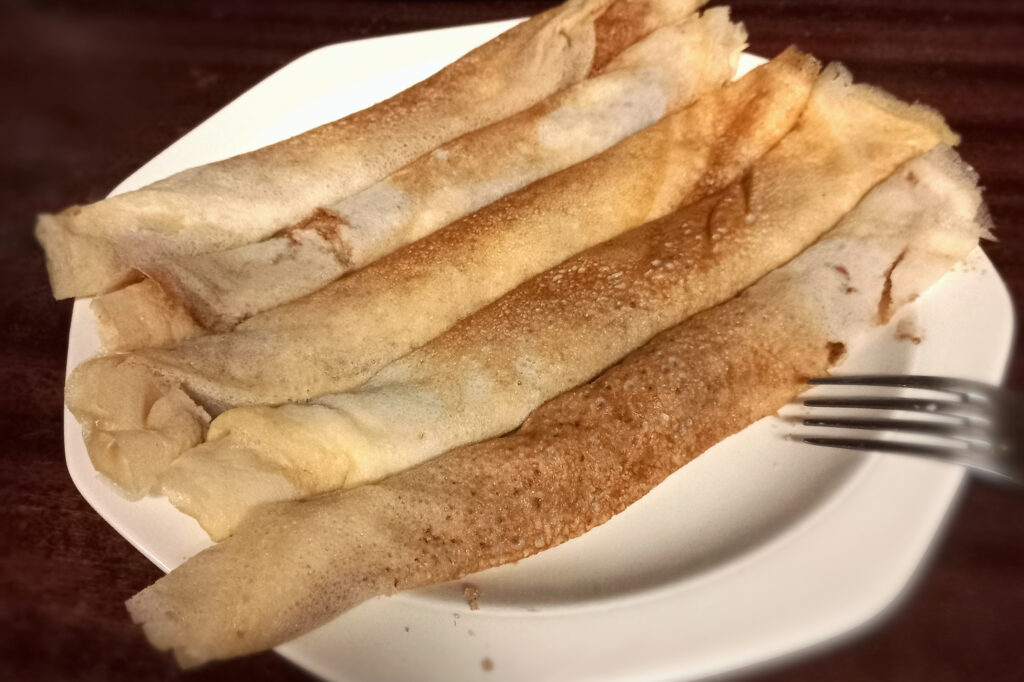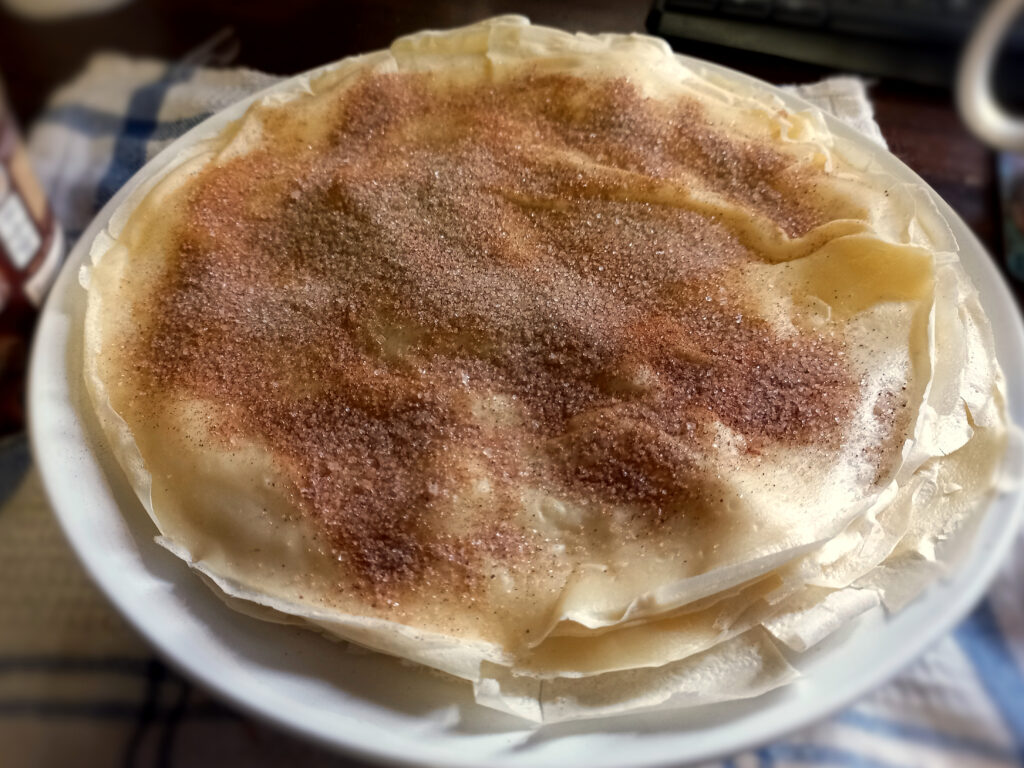
- Local Trippers
-
by John Pot

In my culture, weather like this is called pannekoekweer, or pancake weather. Rainy days are synonymous with the smell of these South African crepes; the phenomenon has even been commercialized, and you’ll find hot off the pan pannekoekweer treats at many local supermarkets. As a notorious sweet tooth I’m no escapee of the tradition, and now with loadshedding I’ll often whip up some batter while the power’s out to pass the time and have something to look forward to (making sure to melt some butter a few minutes before the outage). They can be relatively cheap—eggs, water, flour, and baking powder—they’re easy to make, versatile, and can be spruced up with a couple more ingredients. With all the pancakes I’ve been making I feel that I’ve just about perfected the recipe, a bold statement for someone who has never successfully baked a cake before (even the ones in my dreams flop). I guess I’m just passionate.
But of course, you know it’s not just the weather. Maybe it’s just the strains I smoke, but when I get the munchies I get them hard and pannekoek is perfect medicine. If you’d like to get a head start, you can substitute the butter for cannabis-infused butter or oil, although it will have to be pretty strong as we’re not using a lot.
So here’s my perfect South African beer batter pancake recipe.
Ingredients
- 2 large/jumbo eggs
- 1 cup cold milk
- 1/2 cup cold larger
- 1/2 cup cold water
- 10ml lemon juice
- 1 cup self-rising flour
- 1 teaspoon salt
- 2/3 teaspoon baking powder
- 20mg butter (I think—you’ll see what I mean)

Method
First of all, remember to melt your butter before loadshedding. I usually buy 250g bricks and then cut off about a half a centimeter slab from the end. That ends up to be about 20 or 25mg, so substitute accordingly if you’re using oil. But we’ll get back to the butter later.
In a mixing bowl, add the eggs, water, beer, milk, and lemon juice. It’s important that these ingredients are nice and cold, since that slows the formation of gluten which makes the pancakes tough. So colder ingredients mean fluffier pancakes! Whisk the wet ingredients together—the batter will be very foamy because of the beer. It and the lemon juice will make your pancakes even more tender: the carbonation in the beer goes a long way to adding air, and the acidic beer and lemon juice react with the baking powder also to introduce air bubbles. I’ve tried substituting the entire cup of water for beer but the results were a tad dry, probably from a lot of the alcohol evaporating, so some water is important for keeping them moist.
Next, sift in the flour, salt, and baking powder into the wet mixture—do this little by little as you whisk the wet and dry together. If you add the dry ingredients too fast it will form clumps, which can be removed by running the batter through a sieve, but that’s messy and arduous. Give the sieve a shake or two, whisk, shake, rinse and repeat.
Once the batter is combined, slowly whisk in the butter. The fat will make the pancakes soft and moist, but too much will prevent air bubbles from forming, making them denser. Luckily you’ve got lots of aerators in there, so you’re getting the best out of all your ingredients.
To reduce gluten formation, cover and chill the batter for at least an hour (up to overnight) before baking. The batter will have separated, so just whisk it back together. To keep your pancakes warm as you bake them, pour some boiling water into a pot and put a plate on top, keeping the pancakes covered as you go. Your pan should be very hot so you can hear the batter sizzle when it’s poured. Grease your pan with a little bit of butter or oil (only once every seven or eight pancakes), then swirl the batter around by tilting and rotating your pan until it’s covered in a thin layer of batter. Some people like them thicker, but trust me they’re better as thin as possible. Bake them for about 3 or 4 minutes until the edges have started curling on more than one side, then flip the now golden brown pancake over, and let it bake for about 30 seconds to a minute. You should be able to get about 15 pancakes out of this recipe.
Serving

The simplest and most traditional way of having these is by sprinkling them with cinnamon-sugar (simply mix cinnamon and sugar) and rolling them up (some people like drizzling these with some lemon juice before rolling). Another one of my favourites is the tinned Caramel Treat, but you can go wild with Nutella, syrup, cream, strawberries, jam, milktart filling, or whatever you fancy. Pancakes are also fantastic with a savory filling like mincemeat, tuna, or chicken. Add a lekker sauce and some cheese, and you’re golden.
Anyhow, I hope you enjoy these, but I’ve got some batter that’s been chilling in the fridge since yesterday calling to me.


